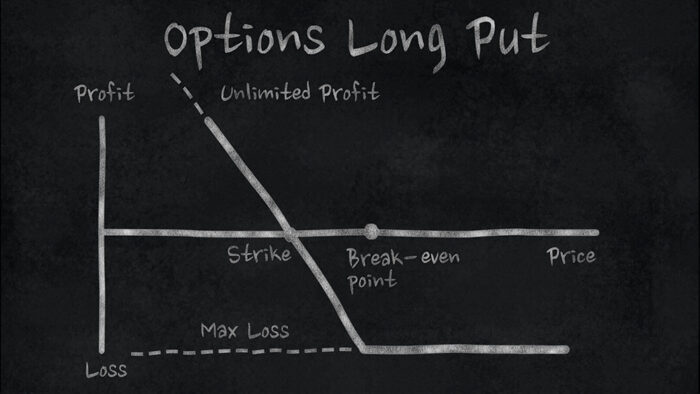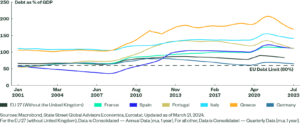My son recently taught me about Betteridge’s law of headlines, and it occurred to me that I’ve been an unwitting adherent for years. The “law” states that “Any headline that ends in a question mark can be answered by the word no.” Even though I’ve revealed this article’s inevitable conclusion in the first paragraph, please indulge me by reading along anyway.
I’ve received several questions about this article, announcing that the Cboe will begin disseminating the Cboe 1-Day Volatility Index on Monday. I fully understand the commercial logic. Zero-dated options are the hot topic right now, and volumes are exploding. Industry volumes have been inexorably migrating towards options with ever-shorter expirations, and it certainly seems logical that an index would be created to quantify the volatility trends in those products.
I have immense respect for the folks at the Cboe, and I certainly don’t fault them for trying to enhance the VIX suite. The VIX complex is a huge cash cow for the exchange, and it makes perfect commercial for them to extract a bit more milk while they can. While it is quite logical to expect that the new VIX1D will provide important clarity about trends in short-term volatility, it would be another to expect that it will offer the sort of robust hedging tools of the original VIX complex.
A big piece of my reticence comes from my contention that 0DTE has not supplanted or “broken” VIX. Instead, we’ve bifurcated the options market between speculators and hedgers. While the percentage of volume has continually migrated into shorter term, that is more a testament to the growth of short-term trading, not a dearth of 23-37 day trading. I’ve long viewed VIX as a measure of the demand for institutional hedges, and certainly not a fear gauge. The whole ecosystem of VIX products is built upon that concept, rather than being a tool for speculation, so it is by far the most efficient way for institutions to hedge. (And it’s never been strictly a fear gauge). I’ve been asserting for some time that the reason for lower peaks in VIX is that institutions were caught off guard in early 2022; as the year went on, they de-risked organically – raising cash and moving into more defensive securities — with less need for options to bear that load. This article outlines my thinking in greater detail.
Meanwhile, an academic paper attempts to quantify some of our recent comments about 0DTE option traders. A paper from researchers at the University of Muenster asserts that zero-dated options buyers in SPX lose an average of $358,000 a day. This is nearly double what they lost a year ago, when fewer daily options existed.
We noted the risks of purchasing zero-dated options about two months ago. Ultra-short-dated options are almost pure decay. It means that while the lack of time premium on a zero-dated option is quite low, making these options inexpensive, by definition they will lose any extrinsic value by the end of the day. Our conclusion was: “Even if the risks of 0DTE options may be overstated on a macro level, they can still be quite high on an individual level – especially over time.”
The appeal of 0DTE options is that they offer a seductive opportunity for high percentage returns with a relatively small, fixed outlay in a very short period of time – just like other forms of gambling. The problem is that most gamblers simply don’t make money over time. The academic study quantifies the losses. It would be quite welcome if the VIX1D index can help shed further light on the risks and rewards inherent to zero-dated options. Yet it is hard to believe that it will replace or supplant the time-tested VIX as a means to understanding trends in volatility and demands for hedging.
Join The Conversation
If you have a general question, it may already be covered in our FAQs. If you have an account-specific question or concern, please reach out to Client Services.
Leave a Reply
Disclosure: Interactive Brokers
The analysis in this material is provided for information only and is not and should not be construed as an offer to sell or the solicitation of an offer to buy any security. To the extent that this material discusses general market activity, industry or sector trends or other broad-based economic or political conditions, it should not be construed as research or investment advice. To the extent that it includes references to specific securities, commodities, currencies, or other instruments, those references do not constitute a recommendation by IBKR to buy, sell or hold such investments. This material does not and is not intended to take into account the particular financial conditions, investment objectives or requirements of individual customers. Before acting on this material, you should consider whether it is suitable for your particular circumstances and, as necessary, seek professional advice.
The views and opinions expressed herein are those of the author and do not necessarily reflect the views of Interactive Brokers, its affiliates, or its employees.
Disclosure: Options Trading
Options involve risk and are not suitable for all investors. Multiple leg strategies, including spreads, will incur multiple commission charges. For more information read the "Characteristics and Risks of Standardized Options" also known as the options disclosure document (ODD) or visit ibkr.com/occ












![[Gamma] Scalping Please [Gamma] Scalping Please](https://ibkrcampus.com/wp-content/smush-webp/2024/04/tir-featured-8-700x394.jpg.webp)
![[Gamma] Scalping Please [Gamma] Scalping Please](https://ibkrcampus.com/wp-content/uploads/2024/04/tir-featured-8-700x394.jpg)












![[Gamma] Scalping Please [Gamma] Scalping Please](https://ibkrcampus.com/wp-content/smush-webp/2024/04/tir-featured-8-300x169.jpg.webp)
![[Gamma] Scalping Please [Gamma] Scalping Please](https://ibkrcampus.com/wp-content/uploads/2024/04/tir-featured-8-300x169.jpg)
solid thoughts on some topical issues. Thanks.
They might have valid uses for very short-term hedging; e.g. news events, balancing trade books, “ST hedging of the LT hedging trades”, and so on.
Exactly
Good to know.